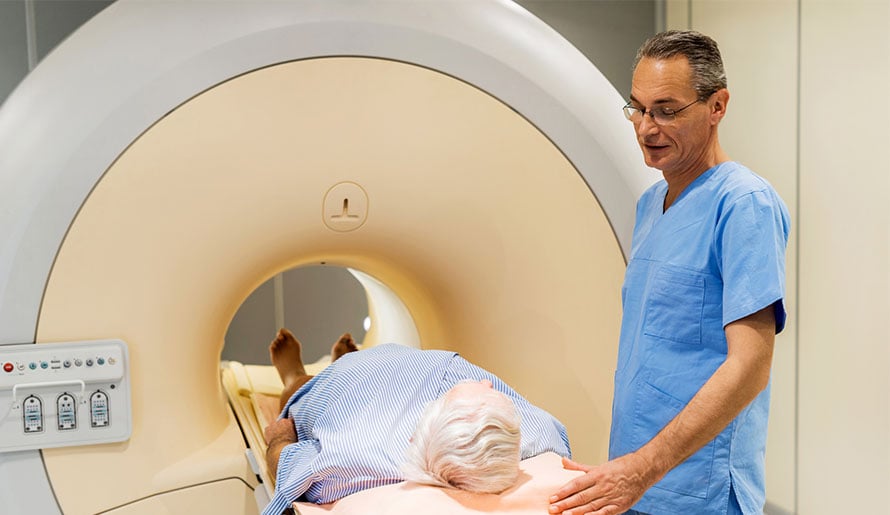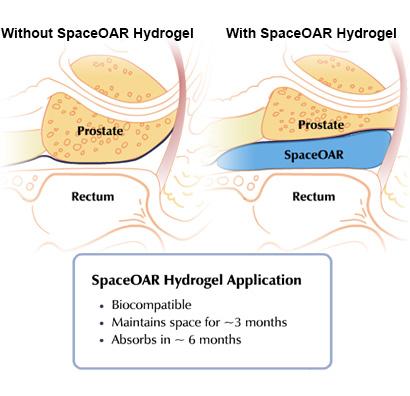Getting The Best Prostate Cancer Hospital In India To Work
Getting The Best Prostate Cancer Hospital In India To Work
Blog Article
Prostate Cancer Cells Treatment: Surgical and Non-Surgical Approaches Explained
When confronted with a prostate cancer cells medical diagnosis, the selection of therapy alternatives can appear overwhelming. From medical treatments to non-surgical strategies, each technique lugs its very own set of considerations and advantages. The decision-making process entails considering elements such as performance, possible side impacts, and long-lasting outcomes. Comprehending the nuances of surgical techniques, like robotic-assisted surgical treatment, and non-surgical treatments such as radiation therapy and hormonal agent therapy, is critical for clients and their family members. This extensive overview intends to lose light on the complexities of prostate cancer cells therapy, providing insights into the ins and outs of each method to empower people in making educated choices concerning their health.
Surgical Treatment Alternatives
When considering surgical treatment alternatives for prostate cancer, clients and healthcare providers commonly consider the advantages and risks linked with different procedures. This procedure is frequently suggested for individuals with local prostate cancer and provides the possibility for a cure.
One more medical alternative is robotic-assisted laparoscopic prostatectomy, a minimally invasive treatment that utilizes a robot system to assist the cosmetic surgeon in eliminating the prostate. This technique can cause less blood loss, much shorter healthcare facility keeps, and faster recuperation times contrasted to typical open surgery. However, it also lugs the danger of issues such as infection and injury to surrounding body organs.
Ultimately, the option of surgical treatment for prostate cancer depends on numerous aspects consisting of the stage of the cancer cells, the patient's general wellness, and their choices concerning possible adverse effects and recovery times. Consulting with a multidisciplinary group consisting of urologists, oncologists, and radiation oncologists can help individuals make notified choices concerning one of the most appropriate medical approach for their individual instance.

Non-Surgical Treatment Options
Thinking about alternatives to surgical treatments, non-surgical treatment choices for prostate cancer cells deal people additional methods for taking care of the condition while decreasing potential medical dangers. One non-surgical approach is Active Surveillance, where clients with low-risk prostate cancer cells are checked very closely with regular exams, blood examinations, and biopsies, without undertaking prompt therapy. This method intends to avoid unneeded therapy and its associated adverse effects, such as incontinence and erectile disorder.
An additional non-surgical alternative is Radiation Therapy, which makes use of high-energy rays to eliminate cancer cells (best prostate cancer doctor). This therapy can be delivered externally using a machine (External Beam Radiation) or internally via small contaminated pellets placed near the growth (Brachytherapy) Radiation treatment can be made use of as a key therapy or in combination with other therapies, such as hormone treatment
In Addition, Hormonal Agent Therapy is a non-surgical technique that intends to decrease the degrees of male hormones (androgens) in the body, as these hormonal agents can sustain the development of prostate cancer cells. By blocking or decreasing androgen levels, hormone treatment can reduce down cancer development and alleviate signs and symptoms in innovative cases.
Robotic-Assisted Surgical Treatment for Prostate Cancer

One of the key advantages of robotic-assisted surgical procedure for prostate cancer is its capability to decrease the threat of issues and side effects commonly connected with open surgery, such as blood loss, discomfort, infection, and prolonged recovery times. Generally, robotic-assisted surgery represents an advanced method to prostate cancer treatment that integrates technical innovations with surgical competence to optimize individual end results.
Radiation Treatment for Prostate Cancer
Making use of sophisticated radiation modern technology, radiation therapy plays a critical duty in the detailed therapy of prostate cancer. Radiation therapy makes use of high-energy radiation to destroy cancer cells and reduce growths. It is an usual treatment alternative for prostate cancer cells, either as a primary therapy or in mix with surgery, hormonal agent treatment, or chemotherapy.
There are two primary types of radiation therapy utilized for prostate cancer cells: outside light beam radiation therapy (EBRT) and brachytherapy. These seeds give off radiation that kills the cancer cells over time.
Radiation therapy for prostate cancer is highly effective, with high remedy prices, particularly for local cancer. It is also a useful alternative for patients who might not be ideal prospects for surgical procedure. Like any treatment, radiation treatment might have adverse effects, such as urinary you can find out more problems, tiredness, and skin inflammation, but these are typically short-term and workable.
Hormone Treatment for Prostate Cancer Cells
Hormone therapy is a commonly utilized therapy technique for prostate cancer management. Prostate cancer cells is commonly fueled by the male hormonal agent testosterone. Hormone treatment, likewise referred to as androgen deprivation treatment, aims to reduce testosterone degrees in the body or block the hormone's results on the prostate cancer cells, therefore reducing the disease's development. This treatment is particularly reliable in innovative stages of prostate cancer cells, where surgical treatment or radiation therapy might not be adequate.
There are different sorts of hormonal agent therapy for prostate cancer cells, consisting of medications that reduced testosterone degrees (such as luteinizing hormone-releasing hormone agonists and antagonists), or drugs that block testosterone from getting to cancer cells (like anti-androgens) Hormonal agent therapy can be used alone or in mix with various other therapies like radiation therapy, relying on the stage and aggression of the cancer cells.
While hormone treatment can successfully control prostate cancer development, it might come with side impacts such as hot flashes, loss of sex drive, impotence, and osteoporosis - Best prostate cancer doctor in Mumbai. Normal monitoring and discussions with doctor are critical to manage these side impacts and make sure the therapy's efficiency
Verdict
To conclude, the treatment choices for prostate cancer include non-surgical and surgical methods such as robotic-assisted surgical treatment, radiation treatment, and hormonal agent therapy. Each approach has next its own benefits and risks, and the choice of treatment depends on various factors such as the stage of cancer cells and general health and wellness of the individual. It is crucial for people to review these options with their health care copyright to establish one of the most ideal strategy for their individual situation.

Utilizing advanced radiation modern technology, radiation treatment plays a critical function in the comprehensive therapy of prostate cancer. It is an usual treatment alternative for prostate cancer, either as a key treatment or in mix with surgical treatment, hormone treatment, or chemotherapy.
Radiation treatment for prostate cancer is extremely effective, with high cure prices, especially for local cancer cells.Hormone treatment is a typically utilized treatment strategy for prostate cancer administration.In conclusion, the treatment options for prostate cancer consist of non-surgical and surgical strategies such as robotic-assisted surgical treatment, radiation therapy, look at here now and hormone treatment.
Report this page